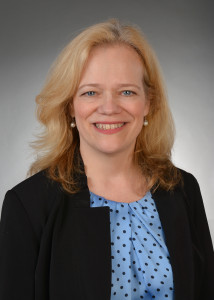Friends of the Court — Part II
In our symposium, “Perspectives on the Impending Fate of Roe,” Helen Alvaré, Professor of Law at the Antonin Scalia Law School, writes: “In Dobbs, the Supreme Court will not restore greater protection to unborn life without a credible argument that by so doing, they are not impairing 21st-century women’s equal and robust opportunities in every sector of society.” In an amicus brief representing 240 women scholars, professionals, and pro-life feminist organizations filed on July 29, Alvaré and fellow attorneys Teresa Collett (also part of our symposium) and Erika Bachiochi (author of the important new book The Rights of Women) present overwhelmingly credible data-backed arguments that not only is it “impossible” to isolate abortion as a “cause of women’s social and economic participation” but, on the contrary, there is formidable evidence that easy access to abortion has harmed women in many ways—including professionally.
In a press release from amicus Feminists Choosing Life of New York, Michele Sterlace, JD, LLM, comments: “This brief overthrows the fiction that women need and rely upon abortion rights to participate equally in civil society. The Casey Court largely upheld Roe based on stare decisis, grounded in the manufactured notion that ‘women rely upon abortion for their success.’”
The brief’s authors argue that “Women’s rising participation in the economic and political life in the country” is due to a “complex mix of multiple factors,” and the studies abortion advocates rely on to claim with “certainty” that abortion benefits women are “fatally flawed.”
Furthermore,
Robust evidence suggests that relatively easy access to abortion has changed society in several ways disadvantageous to women. . . . First, by acting as a kind of secondary insurance against child-bearing to the primary (but fallible) insurance of contraception, easy access to abortion tends to change sexual behavior in favor of greater sexual risk-taking, which disincentivizes contraceptive use and leads to more uncommitted sexual relations.
Over time, increases in risk-taking, coupled with contraceptive failure, misuse, or nonuse leads to more nonmarital pregnancies, single parenthood and abortion, all of which disproportionately impact women. … The availability of abortion does this by severing sex from any idea of a joint future—from children, kin, marriage—and thereby establishing nonmarital sex as the price of a romantic relationship, even as women continue to report that this new sex ethic is undesirable to them … and that many are having fewer children than they would like.
And,
Ironically, under the guise of women’s rights, equality arguments for abortion suggest that females are intrinsically blighted by their reproductive capacity to bear children. These arguments tend, unwittingly perhaps, to promote the male childless norm in educational and employment settings. . . . Given Roe’s unscientific description of the dependent human being nurtured by a woman in pregnancy as “potential life,” and Roe’s creation of a license to dispense with that life should she so choose, it is also unsurprising that complaints of “rampant” pregnancy and caregiver discrimination persist. While explicit sex discrimination is increasingly a thing of the past thanks to the cultural and legal advances described herein, discrimination against mothers perdures.
Or, as Helen Alvaré wrote for the Human Life Review: “If the whole world—including pro-abortion feminists—proclaims that the ‘ideal worker’ is like a man without parenting responsibilities, then why should public and private policies extend accommodation to women?”
The amici are “a group of 240 women who have achieved academic and professional success and who reject the argument that the ‘ability of women to participate equally in the economic and social life of the Nation’ requires the availability of abortion.”
Among them are several contributors and friends of the HLR—including Alexis Carra, Destiny Herndon de la Rosa and her organization New Wave Feminists, Catherine Glenn Foster, Jacqueline Nolan-Haley, Kelsey Hazzard and her organization Secular Pro Life, Laura L. Garcia, Jeanneane Maxon, Catherine Ruse, Michele Sterlace of Feminists Choosing Life of New York, and Evelyn Birge Vitz.
,



 is the Editor in Chief of the Human Life Review
is the Editor in Chief of the Human Life Review





